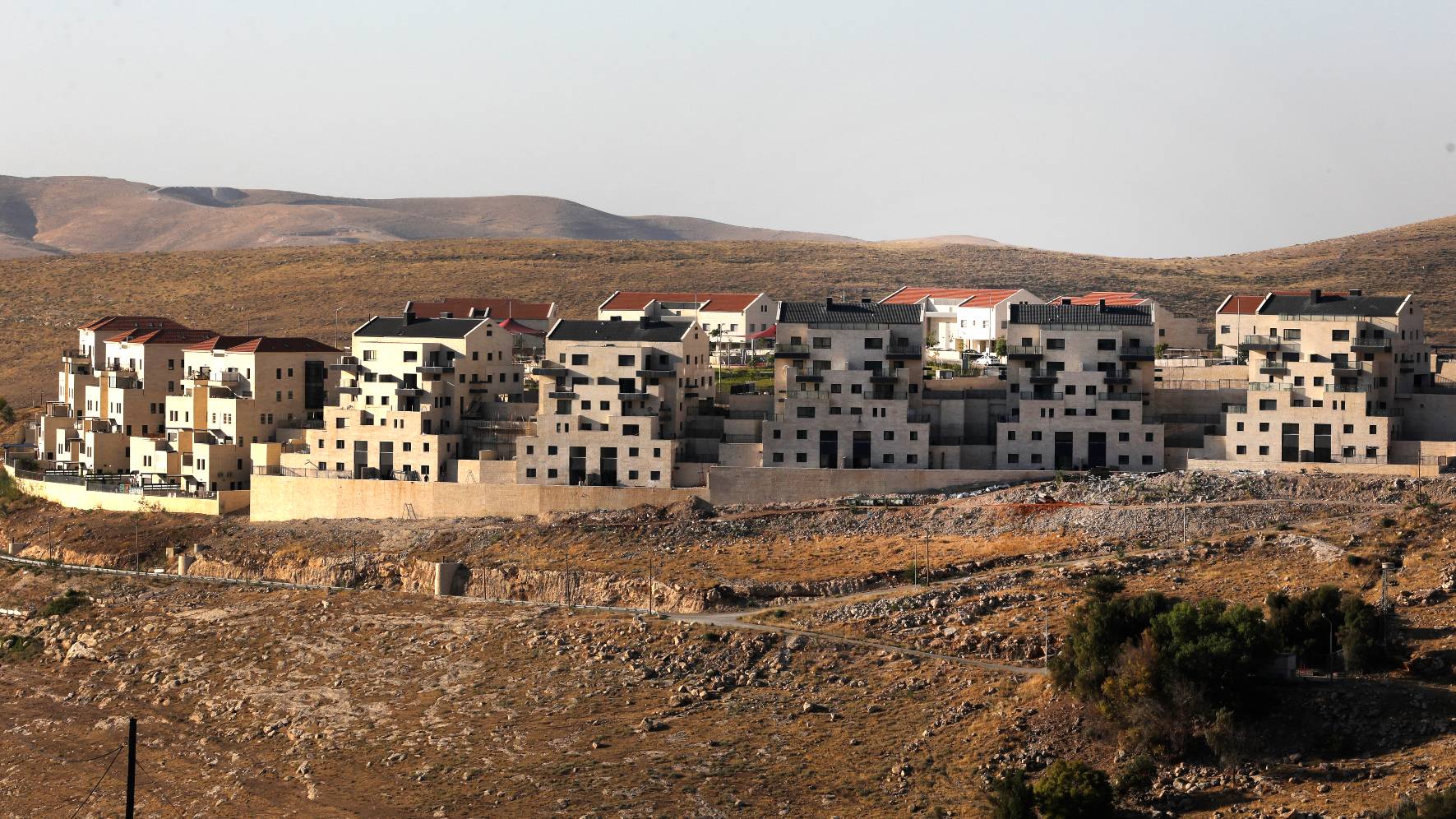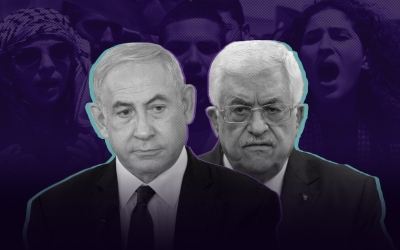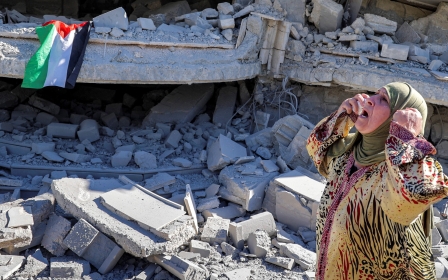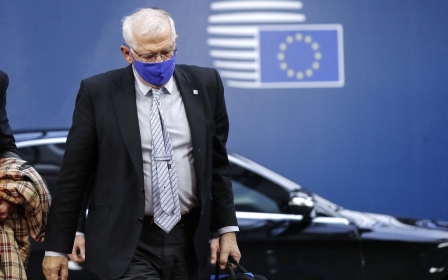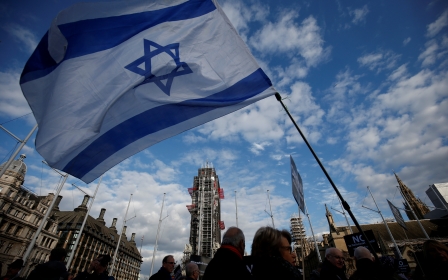Israel-Palestine: European criticism of settler violence reeks of hypocrisy
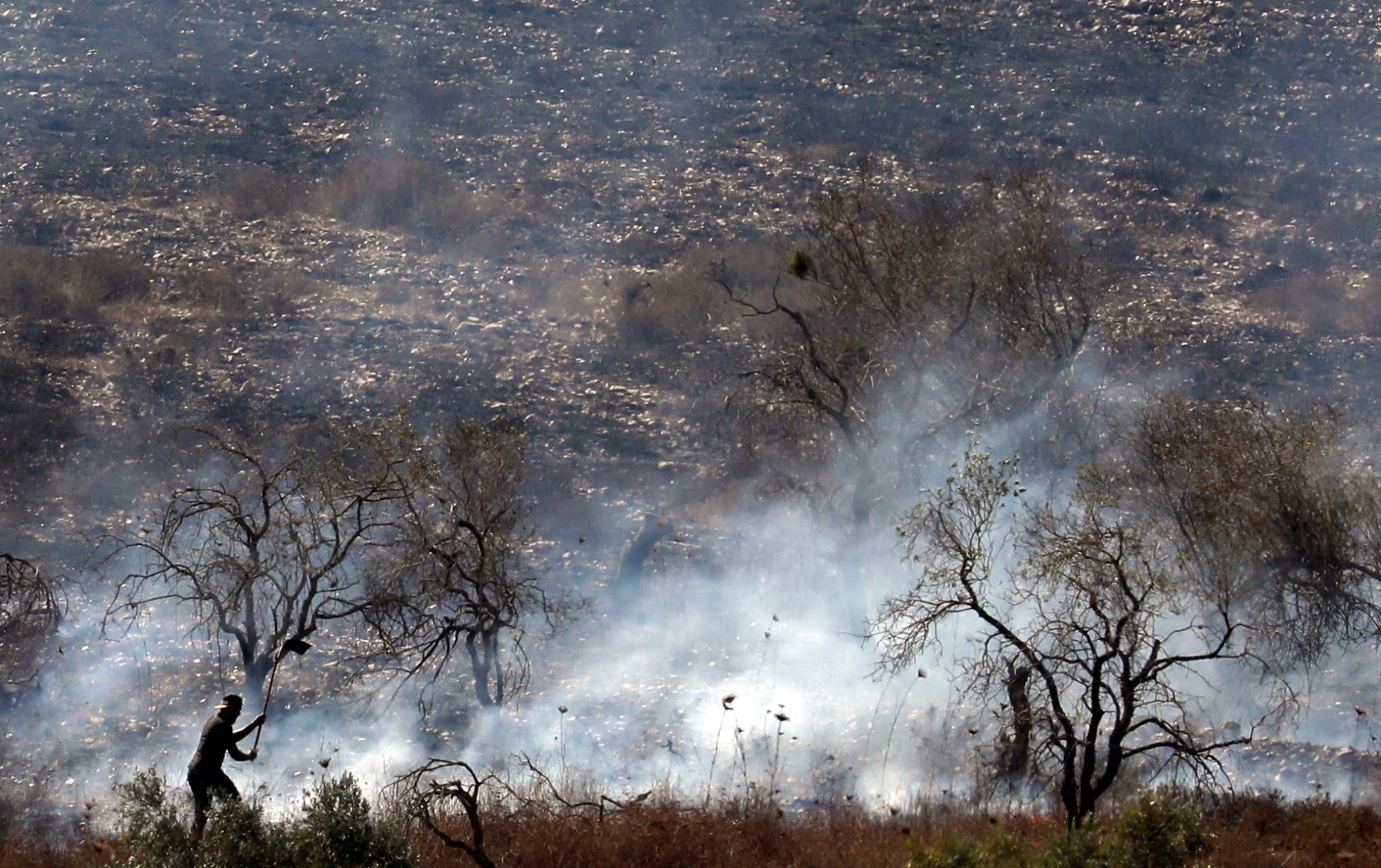
Over the last few months, the decades-long violence and terror inflicted by Jewish settlers against Palestinians in the occupied West Bank garnered new attention by European countries, including Britain, and in the European and US media.
As Israeli Prime Minister Naftali Bennett defended settlers, calling the attacks an “insignificant phenomenon”, two Jewish Knesset members last month invited European ambassadors to attend a conference on how it is the EU and Palestinian leftist organisations - not Jewish settlers - who are the “instigators of violence in Judea and Samaria”. The Knesset members accused the EU of antisemitism and “blood libel” for depicting Jewish settlers as the culprits.
Whatever objections the Europeans claim to have today stand in stark contrast to their overall consistent policies of supporting Jewish settlement in Palestine
Bennett, who has proudly boasted about “killing lots of Arabs”, is a right-wing nationalist who shares the expansionist view of settler leaders, having vowed to continue growing existing settlements. He does not hold views that are incongruous with those of a large segment of the Israeli army. According the Guardian: “Experts estimated in 2016 that between a third and half of army cadets espoused religious Zionism, the credo of the more ideological settlers.”
The EU and the UK have paid much lip service over the years to condemning the “violence” of Jewish settlers, so much so that in 2012, and again in 2014, the EU considered blacklisting “violent” settlers and barring them from entering the EU. Note that the settlers’ theft of Palestinian lands is not considered a violent act by the EU.
Nonetheless, the Israelis were infuriated at the alleged anti-settler bias, especially as the Israeli foreign ministry had no prior knowledge that the EU was preparing such a blacklist. A ministry spokesman commented: “As for the inflammatory proposal to refuse to admit what they call ‘known violent settlers’ because Israel hasn’t put them on trial, there’s an internal contradiction there. How will a person be defined as a ‘violent settler’ if he hasn’t been convicted? And if he’s been convicted, then Israel has brought him to justice. It seems as if in their eagerness to suggest tough measures, these esteemed experts neglected simple logic.”
The Israelis must have been most persuasive, as the EU apparently dropped the matter altogether.
Feigned concern
Yet, suddenly, European countries are feigning much concern about the recent spate of settler attacks against Palestinians. With Britain in the lead, 16 European ambassadors and diplomats met with Aliza Bin Noun, the director of the European Affairs Department at the Israeli foreign ministry, and delivered a letter expressing their concerns.
Incensed by the Europeans’ chutzpah in criticising Israel, Bin Noun put them in their proper place by giving them a dressing down, and reportedly shouting: “You are pissing me off.” Luckily for the diplomats, Bin Noun, unlike the members of the Knesset, did not accuse the Europeans of antisemitism or blood libel.
The Europeans are not the only ones concerned; so are Israeli Defence Minister Benny Gantz and Palestinian Authority (PA) President Mahmoud Abbas, who met recently to increase security coordination. Gantz, himself accused of overseeing the murder of hundreds of Palestinian civilians in Gaza, asked that Abbas “do more” to suppress Palestinian “violence” in the occupied West Bank - a task at which Abbas’s mercenary security apparatus has excelled since the PA’s formation in 1994.
When Abbas shyly brought up the violence of the illegal Jewish settlers, however, Gantz reportedly assured him that “most settlers are not the problem”. In addition to continuing security coordination to suppress Palestinian resistance, Abbas made sure to secure “hundreds of permits for Palestinian businesspeople to let them move relatively freely between the West Bank and Israel, and dozens of so-called VIP passes for senior Palestinian Authority officials”, according to a report in Haaretz.
A few days after the meeting, PA security forces were unleashed on the occupied Palestinian town of Jenin, which they terrorised as they arrested several teenagers, sparking an uprising by the town’s residents, who attacked a local PA headquarters. Unlike Israeli soldiers, who treat illegal violent Jewish settlers gingerly - especially so as a large number of soldiers share “cultural factors aligning many of them with settlers” - the PA goons are aligned with the Israeli occupation, and not with the Palestinian people.
Violent tradition
The violence that Jewish settlers have visited on Palestinians is hardly new. Indeed, it has been part of the tradition of Jewish colonisation of Palestine since the 1880s to aggress against Palestinians who owned the land coveted by settlers. In 1911, following the sale of vast tracts of lands by absentee landowners to the Jewish National Fund, authorities forcibly expelled Palestinian peasants, arrested many, and the Zionist militia Hashomer killed one peasant.
As for other evicted peasants who worked as labourers in Jewish colonies, Hashomer thugs beat them up so cruelly that they were instructed by boards of the Jewish colonies to stop abusing the Palestinians. By the 1930s, the settlers had moved from killing peasants and beating Palestinian labourers to blowing up cafes with grenades (such as in Jerusalem in March 1937) and placing electrically timed mines in crowded marketplaces, among other atrocities. By the 1940s, they were blowing up ships and hotels, among other targets, culminating in their butchering of Palestinians through dozens of massacres in 1947-48.
Hardly any of the violence carried out by Jewish settlers in the occupied West Bank, Jerusalem or inside Israel proper nowadays differs from the violence enacted since the beginning of Jewish settler-colonisation of Palestine; witness last week’s protests by Palestinian citizens of Israel, who are under threat of losing their lands in the Negev by the very same Jewish National Fund that evicted Palestinians a century ago under the guise of land “forestation”. The eviction of Palestinians in the Negev by the Israeli government has been ongoing for years.
Whatever objections the Europeans claim to have today stand in stark contrast to their overall consistent policies of supporting Jewish settlement in Palestine and Zionist theft of Palestinian land, before and after the establishment of the state of Israel.
Europe’s subsidising of Israel’s occupation and the PA’s role in suppressing Palestinian resistance continues the European tradition of supporting settlers around the world, from the Americas to Africa to Oceania. That the Europeans deem Jewish settler violence as manifesting only in some of their physical attacks against Palestinians, but not in the theft of Palestinian lands and homes, hardly alleviates Europe’s enabling of such violence by its financial, military and diplomatic support of Israel and the PA.
No wonder Bin Noun deservedly dressed down the European diplomats for their hypocrisy and sent them home packing with their tails between their legs.
The views expressed in this article belong to the author and do not necessarily reflect the editorial policy of Middle East Eye.
This article is available in French on Middle East Eye French edition.
Middle East Eye propose une couverture et une analyse indépendantes et incomparables du Moyen-Orient, de l’Afrique du Nord et d’autres régions du monde. Pour en savoir plus sur la reprise de ce contenu et les frais qui s’appliquent, veuillez remplir ce formulaire [en anglais]. Pour en savoir plus sur MEE, cliquez ici [en anglais].



